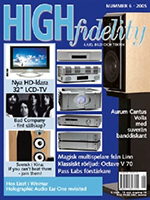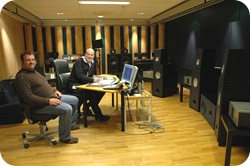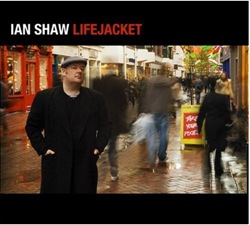Jitter is a term often heard in relation with digital audio equipment but not something easily understood. After all, Fourier transforms are not exactly the first thing we learn in school, nor is it math that most of us ever get to use in real life.
First of all jitter is not one thing. Not surprisingly jitter refers to the same thing in digital signal processing as it does when referring to neurological diseases – tremors.
Talking about music, there are two types of jitter that cause problems: Seek jitter and clock jitter.
Seek jitter occurs when a CD player encounters a read error and tries to correct the error. In the process the sample stream is stopped and restarted but the stream may not be restarted in exactly the same place it was interrupted but may start early by a couple of samples, introducing false samples into the stream, or indeed omitting some that should be there. Seek jitter manifests itself by a notable clicking sound and is only present with traditional Red Book audio CD players. A good reason for keeping your CDs clean and correction at a minimum.
Clock jitter is less obvious but at the same time more ubiquitous. The analogue carrier signal sent between components in the signal chain, is optimally a square wave. A high voltage signals a 1 and a low signals a 0. The problem is that this square wave is inevitably distorted in the passing and the vertical edges loose steepness and the time at which a bit change is detected can vary ever so slightly – a bit like balancing a ball. That means that the precise moment in time were a change should take place can shift. “Okay”, you might say. “We loose a bit here and get another there – big deal”. Well, it could be a big deal. We might loose a low order bit somewhere, having barely any impact in a 16 or 24 bit word. No, the problem is getting or loosing a high order bit. That could mean the difference between 65,536 and 0 in a 16 bit world or between 16,777,216 and 0 in a 24 bit word. Exactly how that would impact a sound sample I cannot say; I assume it would depend on the protocol. But negligible is not exactly a word that springs to mind. The audible error you would get is one of extra frequencies around the one you would expect adding noise. With clock jittering this noise is mostly either a white noise embedded in the music or a few dominating frequency ranges.
Most often caused by analogue noise introduced many places in the signal chain, clock jitter is not something you remove using purple markers or nano-covered CD weights. It requires a clean-up of the signal path and that most often requires extensive electronics knowledge. But accepting that jitter is not just a figment of some over zealous, hi-fi interested health fanatic’s mind is a step on the way of selecting the right equipment and honouring the part of the signal path you yourself have some say over.
 A beacon in the Danish hifi community has decided to turn off the lights. Dating back to 1971, High Fidelity was the pinnacle magazine from Forlaget Audio for many years. In 1997 the magazine was sold to its editors and now a poor financial foothold turns the final page.
A beacon in the Danish hifi community has decided to turn off the lights. Dating back to 1971, High Fidelity was the pinnacle magazine from Forlaget Audio for many years. In 1997 the magazine was sold to its editors and now a poor financial foothold turns the final page.
 One of the all times most fascinating DIY web sites on electronics, has to be
One of the all times most fascinating DIY web sites on electronics, has to be  Norwegian recording and music production company
Norwegian recording and music production company  …is what Linn
…is what Linn